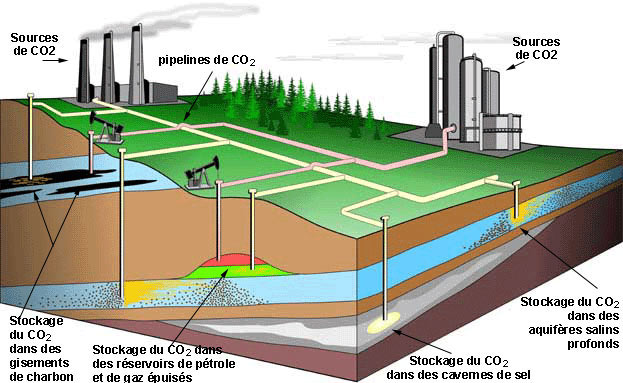Iceland-based geothermal developer Reykjavik Energy will participate as the main sponsor in a project in which scientists from Iceland, the U.S. and France will study methods of imitating and speeding up the naturally occurring process in which carbon dioxide (CO2) is released from solidifying magma, reacts with calcium from basaltic rock and forms calcite.
Reykjavk is part of a consortium of scientists, including Sigurdur Gislason of the University of Iceland, Wally Broecker with Columbia University in New York and Eric Oelkers with CNRS in Toulouse, France, which will pursue innovative solutions to safe, permanent CO2 storage that can be used throughout the world.
The research will be a combined program consisting of field-scale injection of CO2 at Reykjavik's 300 MW Hellisheidi geothermal power plant, laboratory-based experiments, large scale plug-flow experiments, study of natural CO2 waters as natural analogue and state-of-the-art geochemical modeling. Reykjavik said its facilities at the Hengill geothermal area in Iceland, where the Hellisheidi power plant is under construction, is an ideal site for a multinational scientific project.
At Hellisheidi, a mixture of water and steam containing CO2 will be harnessed from 6,561-foot (2,000-m) deep wells. Plans call for the CO2 to be dissolved from the plant in water at elevated pressure and then injected through wells down to 1,312 feet and 2,624 feet (400 m to 800 m), just outside the boundary of the geothermal system.
Reykjavik said injecting CO2 at carefully selected geological sites with large potential storage capacity can be a long-lasting and environmentally benign storage solution. To date, CO2 is stored as gas in association with major gas production facilities such as the Statoil-operated Sleipner field in the North Sea and In Salah in Algeria, which is operated by Sonatrack, BP and Statoil.
What makes the Icelandic project unique is that while these other projects store CO2 mainly in a gas form, where it could potentially leak back into the atmosphere, the current project seeks to store CO2 by creating calcite in the subsurface. Calcite, a major component of limestone, is a common and stable mineral in the Earth and is known to persist for tens of millions of years or more.
Reykjavik said the project's implications for the fight against global warming are considerable, since basaltic bedrock susceptive to CO2 injections are found across the planet.
More than 90 percent of Iceland is composed of basaltic rock, which is one of the most reactive rock types of the Earth's crust. Basaltic rocks contain reactive minerals and glasses with high potential for CO2 sequestration. Basaltic rocks also are found in Siberia, the Deccan plateau of western India, the Columbia River basalt in the northwestern U.S., and volcanic islands such as Hawaii.
Iceland's President Olafur Ragnar Grimsson and Iceland's Minister for the Environrment, Thorunn Sveinbjarnardottir, were present when contracts on the project's scientific and financial aspects were signed.

